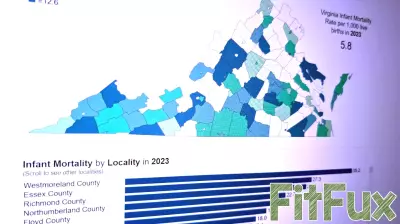January 30, 2025 - 08:01

Recent research highlights a notable connection between the implementation of a tax on sugar-sweetened beverages and changes in body mass index (BMI) among adults in Berkeley, California. The study suggests that the tax, which was introduced to combat rising obesity rates and promote healthier choices, has led to a measurable decrease in the consumption of sugary drinks.
As residents adjusted their purchasing habits in response to the tax, researchers observed a corresponding decline in BMI metrics. This finding supports the idea that fiscal measures can influence public health outcomes, particularly in areas heavily impacted by obesity-related issues.
The implications of this research extend beyond Berkeley, as other cities and regions consider similar taxation strategies to improve health statistics. By targeting sugary drinks, which are often linked to various health problems, policymakers may find a viable tool to encourage healthier lifestyles and reduce the prevalence of obesity and related diseases in their communities.



